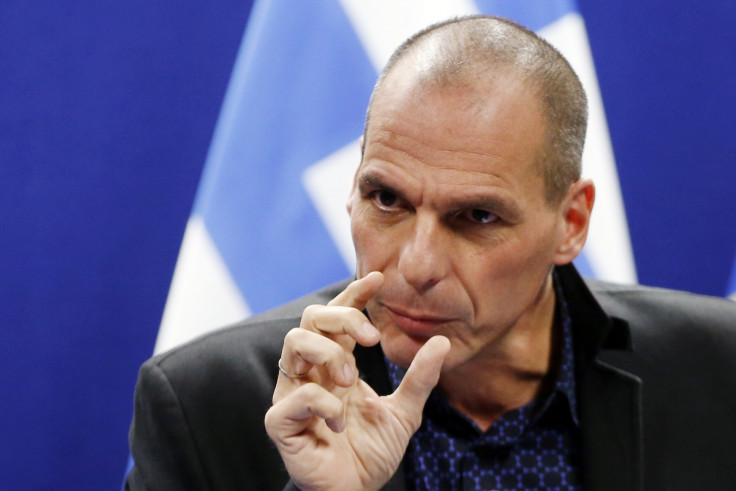Grexistential threat: Euro crisis going to the wire

Talks over Greece's debt had barely begun when they collapsed on Monday, with Athens' left-wingers leaking a draft agreement to the press before leaving the building in Brussels in contempt.
"A waste of time," is how an anonymous Greek minister described the afternoon session, adding for good measure that the eurozone proposal was "absurd".
With Greece's current bailout expiring on February 28, time is something that Europe can ill afford to waste.
Euro chicken
Greek finance minister Yanis Varoufakis insisted on Monday he is not playing any kind of game and that "there is no plan B" for Athens. It wants to remain in the eurozone and it wants to negotiate better terms on its debt repayment schedule, he said, in a tone that suggests a so-called Grexit is unthinkable.
But other eurozone ministers have shown the same confidence in their own convictions that Greece must accept the terms of debt management that its previous leaders signed up for, if it wants access to new finance.
The left-wing Syriza party, which dominated the Greek government, has defined its red lines, the key one being an aversion to "extending" the current bailout in any form. The problem with this strategy is that the majority of the eurozone is insisting that Greece must work within the current terms of the bailout if it is to receive any extension.
Grexistential crisis for Syriza
The nature of Monday's debacle may have left the markets dubious and uncertain, but it has crystalised the thinking of Greek people, who are wholeheartedly backing the government's insistence that the current bailout cannot be extended.
Thousands of Greeks flooded Athens in a solidarity rally ahead of the talks, with German leaders Angela Merkel and Wolfgang Schaeuble the chosen villains for the day.
The anti-austerity Greek government has promised Greek voters a better deal from its creditors and its performance this week will wholly define its political future.
Its very existence, and eventual electoral success, is based on the idea that top-down austerity imposed by Greece's creditors is ruining the national economy.
Syriza has promised to improve the terms of its debt repayments and to relax strict austerity targets that have caused a wave of joblessness in the country.
The current government also knows that the vast majority of Greeks do now want to drop the euro currency, an eventual consequence if it does not secure a new deal and stave off bankruptcy.
Key moment in EU history
The rise of Syriza and its performance at these crunch talks could have a profound impact on European democracy.
On the one hand, a positive outcome for the anti-austerity party could embolden sympathisers throughout the European bloc.
Spain and Portugal are both due to hold elections this year. Both governments and electorates are enduring a bout of austerity fatigue.
The left-wing anti-austerity Podemos has gained traction in Spanish politics and will be cheering on Syriza from afar this week.
If the Greeks leftists can grab a better deal from Europe then the Spanish leftists could expect a surge in the polls.
Moreover all the countries that took a financial bailout from the EU and IMF, namely Spain, Portugal, Ireland and Cyprus, would conceivably return to Brussels with similar demands for austerity relief.
Grexit
The alternative would be that Syriza takes Greece out of the eurozone and into an uncertain future. Looking at Greece, Syriza's failure in Brussels would surely spell the end of its government and leave Greece with a choice between familiar old leaders, technocrats and neo-Nazis.
Such an outcome would also create a fresh financial crisis in Greece, at least in the short-term, with the possibility of bank runs and rapid inflation following the introduction of a new currency. In an ominous sign, money has already started streaming out of Greek banks.
Grexit would open the door to the possibility of other nations dropping the euro currency, a prospect that could threaten the viability of the single currency and the European project as a whole.
The Europeans have a little under two weeks to avert such a disaster.
© Copyright IBTimes 2025. All rights reserved.






















